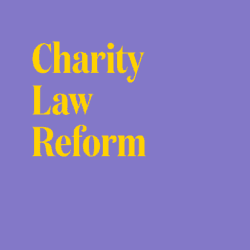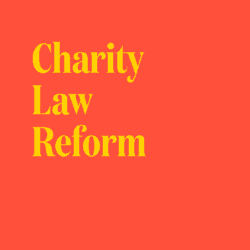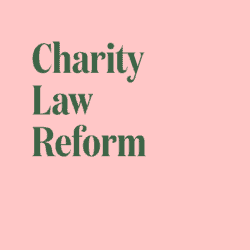This is the third in a series of articles focused on various aspects of charity law that have been a burden on the Canadian charitable and non-profit sector for 70 years. The articles are written by members of the Canadian Bar Association’s Charities and Not-for-Profit Law Section, who deal with these issues on behalf of their clients on a regular basis. In this piece, Anna C. Naud looks at the doctrine of cy-près.
The legal issue that exists
It is not uncommon for a donor, at the time of making a gift, to impose certain conditions on the use of the gift. For example, a donor may require that the funds being gifted to a college foundation are to be used in furtherance of a particular type of research or educational program offered by the college. This type of gift is often referred to as a “donor-restricted charitable gift.” Unfortunately, the restrictions imposed by donors are not always easy to discern or to fulfill.
When this is the case, unless a donor-restricted charitable gift includes a power to vary, a gift recipient is unable to vary the use of the gift without either applying to the court for a cy-près (short for “cy-près comme possible” – “as near as possible” in English) order or invoking any other limited option available. In Ontario, as an example, a gift recipient has the option of seeking a consent order from the Public Guardian and Trustee (Ontario) under Section 13 of the Charities Accounting Act.
Cy-près: the court’s limited jurisdiction to vary how a charity can use funds when they can’t be used as originally requested by the donor.
The cy-près doctrine involves the ability of the court to exercise its inherent jurisdiction to supervise charities and trusts by imposing trust purposes in place of those that were originally chosen by the donor or testator (i.e., someone who has left a legacy in their will). The purpose of the doctrine is to ensure that the objects of a trust are not frustrated by the trust’s administrative provisions. In many Canadian common law jurisdictions, the courts can invoke the cy-près doctrine only in limited circumstances, resulting in inaccessible donor-restricted charitable gifts.
In addition to being used by the court to vary the use of trust funds, the cy-près doctrine has also been invoked by way of analogy by the Canadian courts as a class-action settlement-distribution plan in situations where it has not been possible to give the money directly to class members or where funds have been left unclaimed. At present, certain provincial Class Proceedings Acts provide little or no guidance on when the cy-près doctrine should be invoked by the court, and if invoked, to whom a settlement payment should be distributed. This lack of direction allows for the potential lack of use, or misuse, of the doctrine.
Those who are impacted by the problem
Donor-restricted charitable gifts
Any organization that is the recipient of a donor-restricted charitable gift but is unable to strictly comply with the trust purposes, has no authority to vary the terms of the gift, and does not want to or is unable to invoke any other available option, can use such funds only (i) if it applies for a court order to vary the trust purposes and (ii) the court is able, based on the facts of the particular situation, to exercise its cy-près jurisdiction.
Generally, the court’s cy-près jurisdiction is exercisable only if (i) a general charitable intention of the donor can be found and (ii) the charitable objects set out by the settlor are either impossible to carry out or are impracticable (i.e., inconvenience is not enough of a reason to trigger the doctrine). Determining or demonstrating a general charitable intent can often be difficult, perhaps because the language of the gift agreement is vague or the gift was made as part of a generic public appeal fundraising campaign. Proving impossibility or impracticability can also be complicated.
This inability to use donated funds negatively impacts the recipient organization and those it serves.
If an organization is unable to meet the threshold tests, the court is stifled and unable to vary the trust purpose. This inability to use donated funds negatively impacts the recipient organization and those it serves. The involuntary failure by a recipient organization to use gifts also has the potential to deter future donors and to damage the reputation of the recipient organization (which may be seen as being unable or unwilling to deliver on promises made to donors), thereby impacting the charitable sector as a whole.
Class action settlements
Without guidance on when and how the cy-près doctrine should be applied by the court to class action settlements, the possibility exists that awards may be distributed to individuals or organizations not linked to the plaintiffs or to the issue at hand, or may be distributed in a manner that would not be of general benefit, thereby negatively impacting both the plaintiffs and the community at large.
Potential regulatory solutions that have been proposed
Donor-restricted charitable gifts
Uniform regulation of, and an increased flexibility in, the application of the cy-près doctrine to donor-restricted charitable gifts would provide guidance and certainty to recipient organizations, donors, and the court, and would allow for use of otherwise-stagnant funds in fulfillment of charitable purposes.
In 2012, the Uniform Law Conference of Canada adopted and recommended the Uniform Trustee Act as a sample statute for provincial enactment that extends the court’s cy-près jurisdiction. Previously, the court’s cy-près jurisdiction had largely been derived from common law. Now, as a result of the Uniform Trustee Act, common law jurisdictions across Canada have the option to enact or make amendments to existing legislation modelled on the Uniform Trustee Act. The act provides two important changes to the common law doctrine: first, it removes the requirement that the donor’s general charitable intent be determined, recognizing that it can be very difficult to establish a subjective intent; second, it empowers the court to make an order modifying the purposes of the trust even if the original purpose has not failed.
New Brunswick, as an example, enacted its Trustees Act in 2015 with language mirroring that of the Uniform Trustee Act. It is beyond the scope of this article to opine on the status of trust-related legislation in each Canadian common law jurisdiction, but it can be confirmed that not every Trustee Act has been updated as of the writing of this article to reflect the expansive language of the Uniform Trustee Act.
Class action settlements
The Canadian courts have demonstrated awareness and application of the cy-près doctrine to class action settlement awards. Various courts have opined that settlement payments should be directed toward organizations that are linked in some way to the plaintiffs or to the issue at hand or to organizations that would use the funds to provide a general benefit. In response, Class Proceedings Acts in existence across Canada are currently being updated, on a piecemeal basis, to provide clarification on the application of the cy-près doctrine to class action proceedings. For example, pursuant to a 2018 amendment to the British Columbia Class Proceedings Act, courts governed by such act must order that, if all or any part of an award or settlement funds have not been distributed within a time frame set by the court, 50% of the undistributed amount must be distributed to the Law Foundation of British Columbia, and the remainder of the undistributed amount must be applied in any manner reasonably expected to benefit class or subclass members, including, if appropriate, distribution to the Law Foundation of British Columbia. In Ontario, as a result of a report released by the Law Commission of Ontario on July 17, 2019, in which the commission recommended that the Ontario Class Proceedings Act, 1992 be amended to provide clarity relating to the application of the cy-près doctrine, the Ontario Class Proceedings Act, 1992 was amended in 2020 to permit the courts to distribute an award to a registered charity or non-profit organization agreed on by the parties if doing so would reasonably be expected to directly or indirectly benefit the class or subclass members or, alternatively, to Legal Aid Ontario.
The benefits of solving this issue for the sector
The flexibility provided by the model Uniform Trustee Act, if incorporated within the various provincial Trustee Acts, will enable the Canadian common law courts to vary the terms of donor-restricted charitable gifts in additional circumstances, thereby allowing charities to apply trust funds that are currently blocked from usage in furtherance of charitable purposes.
Guidance, through court decisions and statute, on when the cy-près doctrine should be invoked in class action settlement awards, and to whom such awards should be distributed, will, if applied, reduce the time (and money) spent on disputes relating to the distribution of settlements, minimize the opportunity for legal counsel or the courts to choose settlement beneficiaries based on factors other than community benefit, and allow for class actions to have a positive outcome with broad impact.
Model legislation exists. Court awareness of the issues is setting precedence. Provinces are beginning to evolve accordingly. Now, all we need is time …


